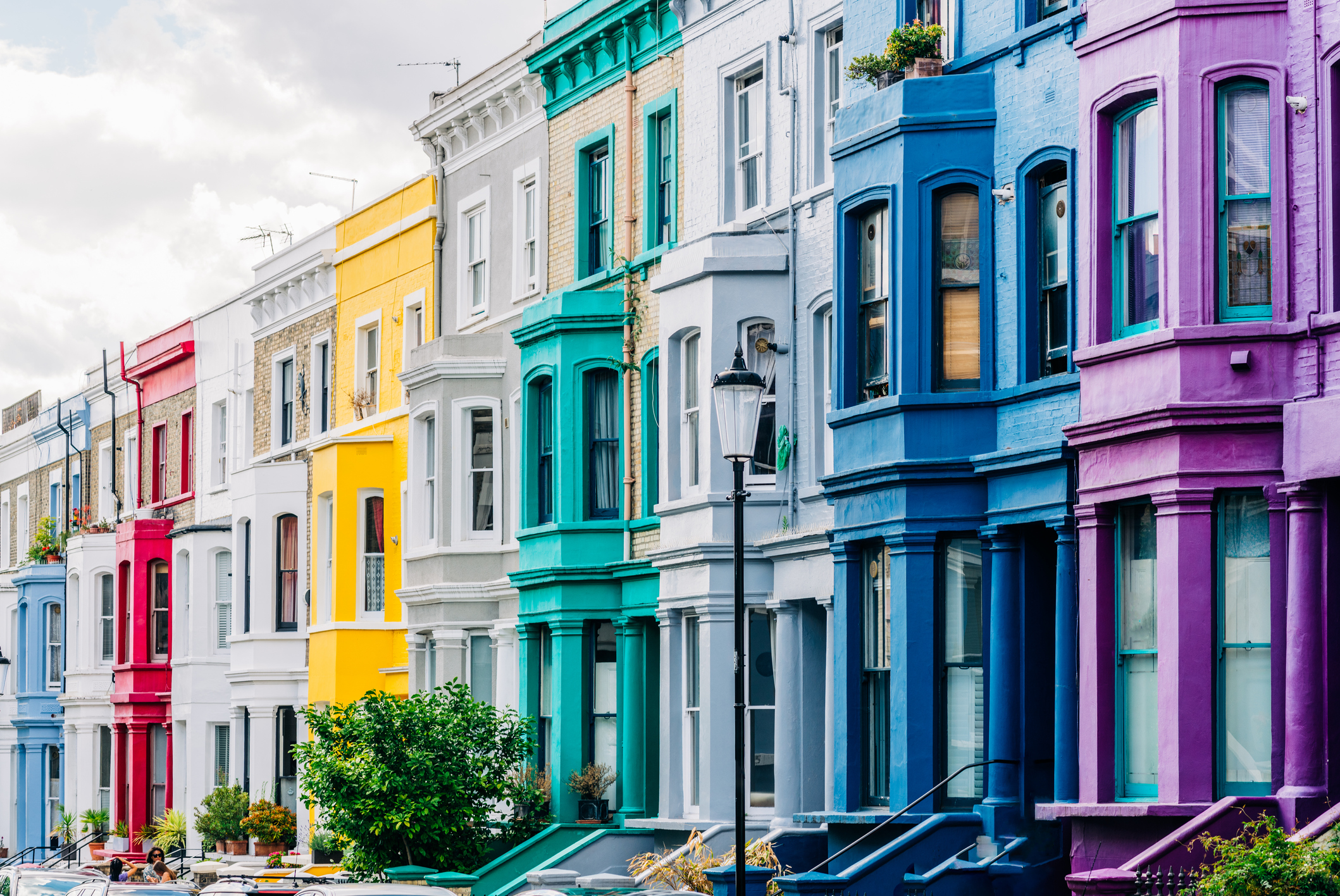The happiest places to live in Great Britain
Looking to buy your next property? We reveal the happiest places to live in


Get the latest financial news, insights and expert analysis from our award-winning MoneyWeek team, to help you understand what really matters when it comes to your finances.
You are now subscribed
Your newsletter sign-up was successful
Want to add more newsletters?

Twice daily
MoneyWeek
Get the latest financial news, insights and expert analysis from our award-winning MoneyWeek team, to help you understand what really matters when it comes to your finances.

Four times a week
Look After My Bills
Sign up to our free money-saving newsletter, filled with the latest news and expert advice to help you find the best tips and deals for managing your bills. Start saving today!
When you’re looking to buy a new house, there are all sorts of things to consider from house prices to what’s happening with mortgage interest rates. Working out the right area for you to live in is about more than just the cost though; you also need to establish where you are going to be happy.
An annual study from Rightmove picks out the happiest places to live in Great Britain, based on everything from green spaces to transport links.
Here are the happiest places in the UK to live in.
MoneyWeek
Subscribe to MoneyWeek today and get your first six magazine issues absolutely FREE

Sign up to Money Morning
Don't miss the latest investment and personal finances news, market analysis, plus money-saving tips with our free twice-daily newsletter
Don't miss the latest investment and personal finances news, market analysis, plus money-saving tips with our free twice-daily newsletter
The happiest places to live
So which are the happiest towns in which to live? Let’s take a look at the top scoring areas according to the Rightmove study:
| Place | Region | Average asking price | Average asking rent (per calendar month) |
|---|---|---|---|
| 1. Richmond upon Thames | Greater London | £952,305 | £3,148 |
| 2. Winchester | South East | £571,613 | £2,097 |
| 3. Monmouth | Wales | £349,312 | £1,214 |
| 4. Wokingham | South East | £572,992 | £2,074 |
| 5. Cirencester | South West | £394,216 | £1,477 |
| 6. Skipton | Yorkshire and The Humber | £259,692 | £875 |
| 7. Hemel Hempstead | East of England | £424,649 | £1,703 |
| 8. Kensington and Chelsea | Greater London | £1,812,424 | £5,371 |
| 9. St Ives | South West | £515,352 | £1,248 |
| 10. Hexham | North East | £317,359 | £957 |
| 11. Leigh on Sea | East of England | £461,804 | £1,637 |
| 12. Harrogate | Yorkshire and The Humber | £394,085 | £1,448 |
| 13. Clacton on Sea | East of England | £263,481 | £1,206 |
| 14. Kendal | North West | £280,276 | £933 |
| 15. Galashiels | Scotland | £163,634 | £700 |
| 16. Weymouth | South West | £318,465 | £1,234 |
| 17. Woodbridge | East of England | £489,955 | £1,153 |
| 18. Anglesey | Wales | £315,742 | £840 |
| 19. St. Albans | East of England | £674,189 | £2,235 |
| 20. Stourbridge | West Midlands | £288,753 | £1,028 |
There are a few interesting facts that jump out from this breakdown.
For example, it’s the first time that a town within the capital has topped this poll, which is now in its 12th year.
It scored well among residents for its sense of belonging and the ability to be yourself, while it also did well on access to nature ‒ perhaps not a surprise when it is home to Bushy and Richmond Royal Parks.
Dawn Platt, associate director of the Richmond branch of estate agent Chesterstons, said that the firm often meets househunters who have always had the goal of living in Richmond, seeing it as an area in which to settle down for the long term.
It wasn’t the only area in the capital to score highly ‒ Kensington and Chelsea took eighth spot, while the City of London itself just missed out on the top 20, finishing in 21st place.
Monmouth took third place, a notable result given it’s the first time an area in Wales has made the top three since 2018. Anglesey was the next best Welsh performer, in 18th spot.
And north of the border, Galashiels was named the happiest place to live in Scotland for the second straight year, finishing in 15th overall.
Happiness rises if you live in the country
Another notable trend from the study was that those living in rural areas appear to be more likely to be happy than those living in cities.
This was particularly true among those who live in towns near to national parks or areas of outstanding natural beauty, while those closer to woodland, mountains, the coast or a river were also found to be more likely to be happy than those in built up areas.
This was seen as a driver for housing activity during the pandemic, with greater numbers of househunters turning their attention to rural areas as they were able to work from home.
With restrictions a thing of the past, and more employers expecting staff to work from the office at least part of the week, these areas are perhaps not as highly sought after yet apparently still result in happier residents.
What makes a happy place to live?
The Rightmove study sees towns allocated a happiness score based on more than a dozen different factors. Here are the different aspects that respondents are asked to score:
- I feel proud about the area I live in
- I feel a sense of belonging
- There’s a real sense of community spirit
- The people are friendly and polite
- I can be myself
- Nature and green spaces
- I earn enough to live comfortably in my area
- Artistic and cultural activities
- Employment opportunities and desirable jobs
- Sports and recreational activities
- Essential local services (such as doctors and schools)
- Amenities (restaurants, shops and the like)
- Public transport connections
One of the interesting conclusions from the latest study was that feeling a sense of pride, belonging and community was most likely to contribute to feeling happy to live in an area compared with aspects like access to public transport, schools and job opportunities.
What’s more, around a third of people said they felt they would be happier if they lived elsewhere, with the option of moving to a bigger home or a change of lifestyle the most common reasons given for people looking to move to a new house.
While the south west was pinpointed as the most popular choice for those who felt they’d be happier living in a different region, only a third of those who felt they’d be happier elsewhere are actually planning on moving in the next year.
Get the latest financial news, insights and expert analysis from our award-winning MoneyWeek team, to help you understand what really matters when it comes to your finances.
John Fitzsimons has been writing about finance since 2007, and is a former editor of Mortgage Solutions and loveMONEY. Since going freelance in 2016 he has written for publications including The Sunday Times, The Mirror, The Sun, The Daily Mail and Forbes, and is committed to helping readers make more informed decisions about their money.
-
 Should you buy an active ETF?
Should you buy an active ETF?ETFs are often mischaracterised as passive products, but they can be a convenient way to add active management to your portfolio
-
 Power up your pension before 5 April – easy ways to save before the tax year end
Power up your pension before 5 April – easy ways to save before the tax year endWith the end of the tax year looming, pension savers currently have a window to review and maximise what’s going into their retirement funds – we look at how
